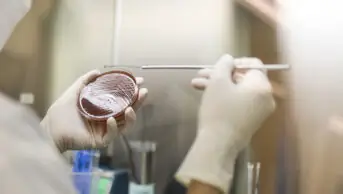
Shutterstock.com
Tackling antimicrobial resistance (AMR) needs to be firmly established as a ‘top five policy priority’ for the government to help prevent the worldwide loss of modern medicine, according to a new report by the House of Commons Health and Social Care Select Committee.
The committee called for targeted prescribing, action to prevent infection, and the development of new antimicrobial treatments to help tackle the growing threat of AMR.
With UK prescribing levels still approximately double that of the Netherlands, Sweden and the Baltic states, the report noted that “a rapid review and withdrawal of clinically unnecessary secondary care prescribing is needed”.
The report highlighted that it has been several decades since a new class of antibiotics has been developed. The committee recommended government investment in basic scientific research, in addition to investment by pharmaceutical companies into further development and bringing antimicrobial products to market.
Sarah Wollaston, chair of the committee, said: “In six months, we want to see tangible progress on implementing practical policies to reverse the worrying exodus from AMR research and development, and both government and industry should play their part in tackling this issue.”
Digital health tools for clinicians and policymakers could dramatically help to reduce the threat of AMR but the committee found the variation in the uptake of best practice was unacceptable.
It advised: “A single organisation should be given responsibility for coordinating clinical decision support systems across the NHS, and ensuring they prompt evidence-based prescribing of antimicrobial [and] other medicines.”
The strategy should also include commitments to establish safe discharge levels for human waste, agricultural waste and pharmaceutical manufacturing waste, and to introduce systems to monitor and enforce them.


